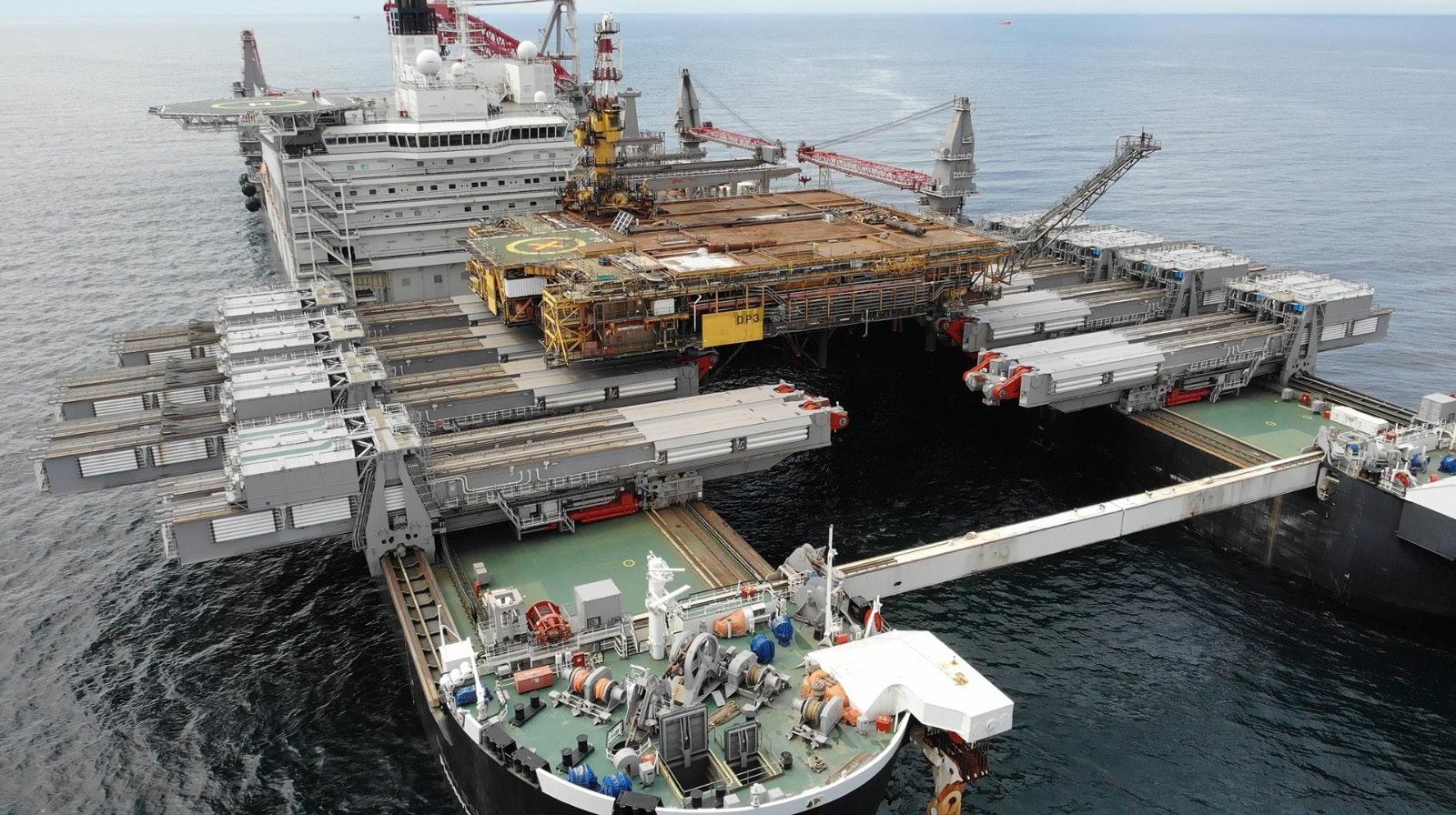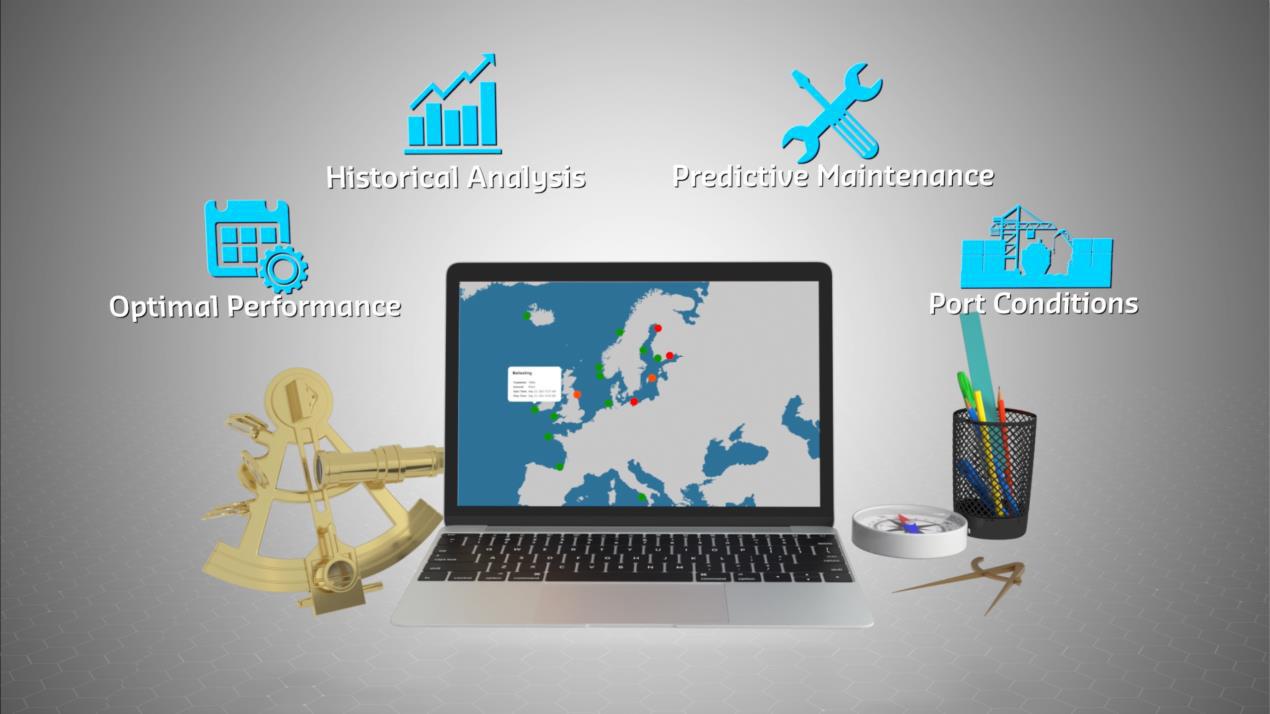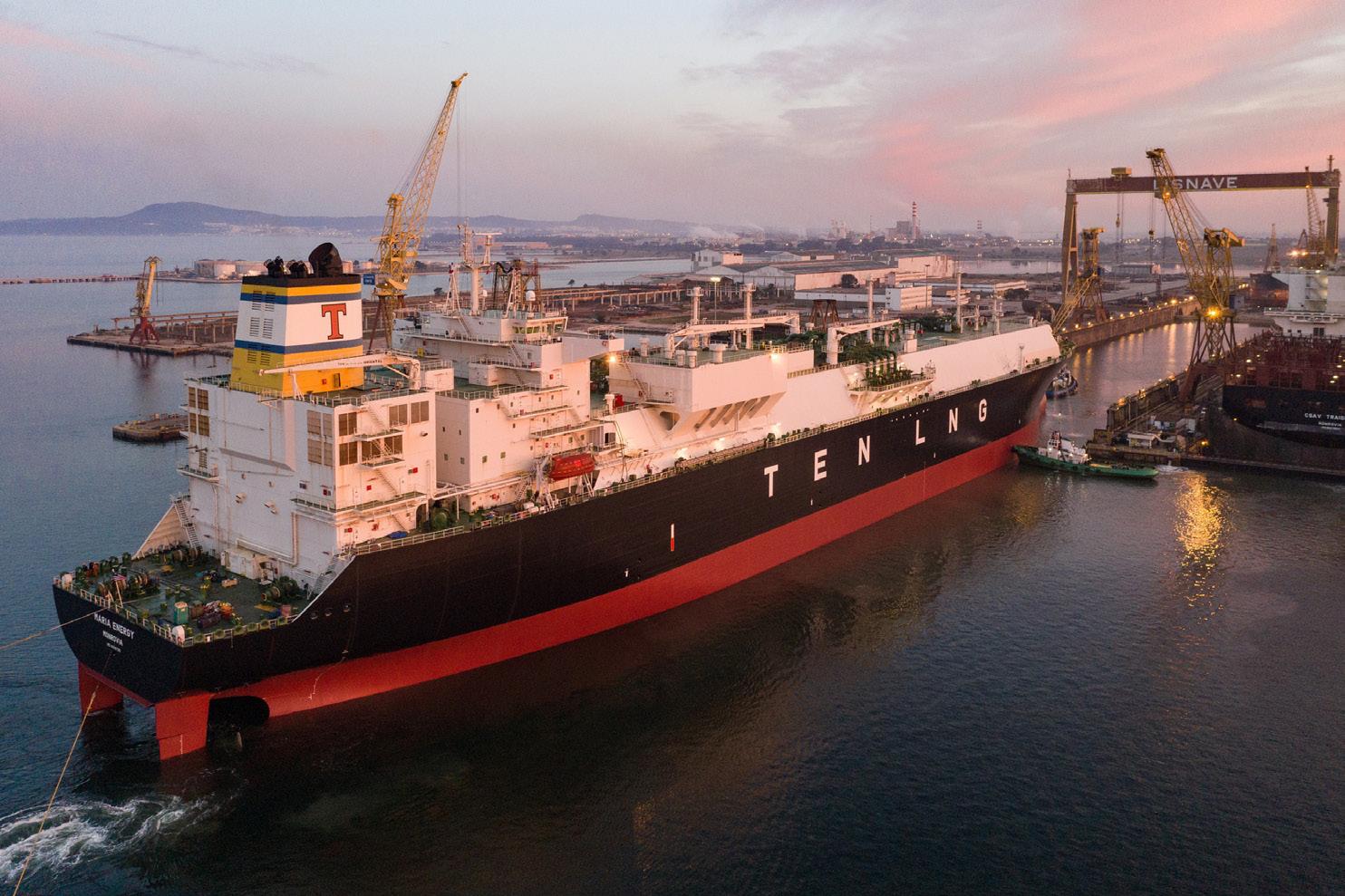Dockgate
by Michael Grey MBE
No fuel like an old fuel The shipping industry’s march towards a zero-carbon future is gradually increasing its pace, and against a background of environmental activism, is unlikely to slow down, even if it wanted to. The great Glasgow envirofest scheduled for the end of the year will be unsparing of any ‘special case’ treatment for shipping, with its activists already proposing a slew of measures that will go far Michael Grey and beyond anything that might feature on IMO’s list of practical steps that would not seriously damage world trade. Green politics, in an age now dominated by agendas dictated by teenagers and millennial activists, are becoming mainstream and gradualism is unfashionable. And whatever practical engineers might suggest, it won’t ever be enough – environmental interests will always want more, and faster. All of which makes life extraordinarily hard for anyone who might be considering serious investment in new tonnage. Against such uncertainties, how might you work out how on earth such ships should be propelled and how they might be fuelled? These will be ships that if ordered today and delivered two years from now, could be still trading a quarter of a century from now. Will they be permitted, in a climate which is already proposing the outlawing of gas fired domestic boilers within a decade and making it illegal (or at least impractical) to sell diesel or petrol fuelled vehicles? The green zealots who are forcing governments down this road don’t care about practical difficulties and the interests of the shipping industry, which they believe is significant only by virtue of its role as a polluter, will be brushed aside. We can probably forget the traditional ‘grandfather’ clauses to protect the economics of existing ships – the activists are now working on the financiers and users of shipping to ramp up their objections to the ‘old and polluting’, no matter how many useful years it might have in it. The giant corporates, which shift vast quantities of goods around the world, earn valuable public relations Brownie-points when they insist that their transportation is greener than green and that they won’t charter ships that don’t match this colour. It is, for them cheap, and burnishes their reputation. ‘Zero carbon!’ – bellow the demonstrators – “When do we want it – now!” And regrettably, this is the message that is resonating with the political class – this is where the votes are to be mined. Does the owner contemplating a newbuilding programme hold fire, and see what emerges from COP 26 after the dust has died down and the 40,000 delegates have jetted off from Glasgow to their home countries (their emissions suitably offset, of course)? Does such an owner look around the market, and opt for ships that have incorporated in their design as many possibilities for different
fuel options and are replete with the best current thinking on sustainability? Does an owner just hope for the best and buy what is cheapest, following tradition, in the knowledge that such a ship may lose any value it has, with years of usage in it, as the greens accelerate their demands? Does the owner join the growing number programming LNG into their future thinking, considering its not unreasonable cost, a spreading worldwide infrastructure and the fact that it actually has been proven to work? But then that owner also has to consider the possible downside in the army of nay-sayers who say LNG, while clean-ish, does nothing in the long term for the environment and is, at best, just a ‘bridging’ fuel. This is the message that resonates where green activists gather together. It doesn’t help the cause of LNG that the World Bank (whatever its technical credentials might be) has issued a decidedly negative report about its use, despite some record ordering of LNGfuelled tonnage. It is interesting that pretty well all the new fuels attempting to make their mark have associations and organisations representing their interests and promulgating their supposed advantages. So there is no shortage of advice, although how objective it might be will be open to question. This is probably just as well as there never seems to be any shortage of activists keen to emphasise the negative aspects of any proposal. LNG, Methanol, Ammonia and Hydrogen all have keen supporters, while scarcely a day goes by without an enthusiastic message from the International Windship Association, urging us all to stop being so ‘fuel-centric’ in our thinking. There is no real argument – wind is the one energy source powering ships that doesn’t have environmental activists demanding that it is stopped in its tracks. It may be a long shot for our owner looking for newbuilding solutions, but there are already all manner of amazing designs for wind assisted ships. This itself places the owner in a desperate conundrum, as worries pile in about the advantages of rotors over fixed wing sails, whether aerofoils (as proved by America Cup yachts) are a better prospect than a 21st century derivation of the sails on Chinese junks, or whether to go for an enormous kite.
It doesn’t help the cause of LNG that the World Bank (whatever its technical credentials might be) has issued a decidedly negative report about its use, despite some record ordering of LNG-fuelled tonnage
Volume 19 Issue 2 – Page 73












